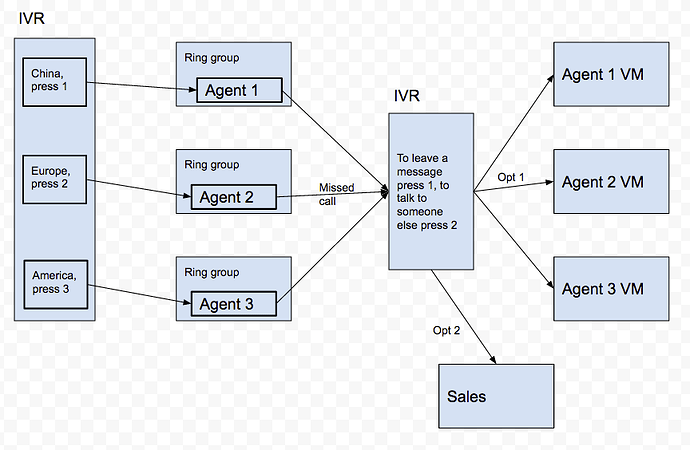Hi all,
So, I’ve built my fair share of applications, call flows, menu’s and queues in Cisco UCCX scripts and one thing I use often is an IF statement to take action based on a certain condition or data. I don’t really know where to start in order to get the same sort of thing in FreePBX, nor do I even know what to search for! ![]()
The idea is that a menu will give callers several unique options, for example, an English School’s Sales department has options for students ringing from China, South America, Europe etc. Each ‘region’ selection puts you through to a single agent, the expert in that market. In reality, the options destination is a ring-group with one (maybe two) extensions/agents in it. If they miss the call, the caller gets a new menu to either leave a voicemail to speak to someone else (that option sends callers to another “General Sales” ring group).
The problem is - if a caller wants to leave a voicemail message; how would I be able to identify which IVR selection they made so as to send them to the correct mailbox?
In a UCCX script, I would set some data on that call - if they selected China, then I could set a variable Country=“China”, and later in the script use an IF statement such as “If (Country==China) is True then Redirect Call to China_Sales_Voicemail”.
Is there some way that I could do something similar in FreePBX? I have some ideas in my head such as;
- Duplicate the IVR for each set of agents so that I can set the correct mailbox option (seems inefficient to have like 5 of the same menu)
- Create a group mailbox, and allow Users to access this Voicemail in their UCP (this could annoy users, as the South America agents would get false positives for China VM’s etc).
- Voicemail Blasting?
Here’s a crude diagram of what I am trying to achieve.
Thanks in advance,



